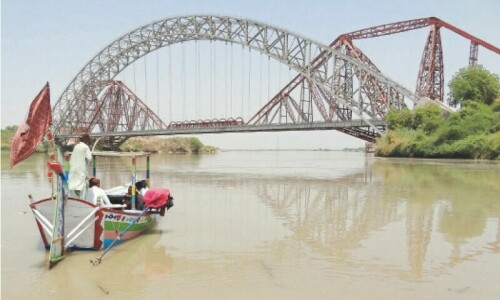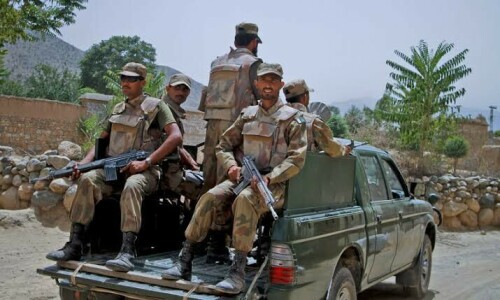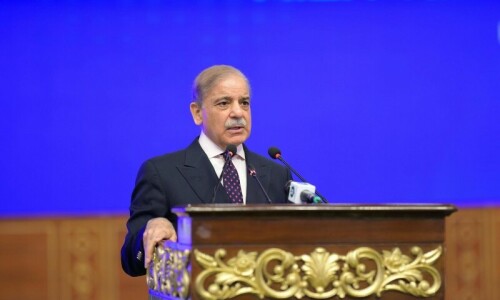ALL governments lie.
A free people expose them.
Recently, Seymour Hersh, the renowned American investigative author and journalist, published an account of the US assault on Osama bin Laden’s residence in Abbottabad on May 2, 2011 that was published in the prestigious London Review of Books. Hersh rubbishes the respective narratives put out by the governments of the US and Pakistan.
The Abbottabad Commission inquired into (i) the sequence of events, including decisions and indecisions on the night of May 1-2, and (ii) the sequence of events, including decisions and indecisions in the run-up to the US assault.
The Abbottabad Commission was unable to reach a consensus, particularly with regard to determining who were primarily responsible for creating the conditions in which (a) the US was able to deeply penetrate Pakistani airspace, successfully assassinate OBL, safely exit Pakistani airspace without encountering any resistance during their three-hour mission inside Pakistan and (b) OBL and his family and attendants were able to stay and travel in Pakistan apparently undetected for almost a decade.
A Dissenting Report was included in the report submitted to the then prime minister. One member of the Commission sought to include a reply to the Dissenting Report in the Commission report. Copies of the report that was actually submitted to the prime minister by the president of the Commission were not made available to the other members of the Commission. They were not invited to the presentation. It remains unclear what the content of the report submitted to the prime minister actually is.
The prime minister was supposed to present the Commission’s report to parliament, which in a joint sitting had unanimously called for the establishment of an inquiry commission. He has not done so. He has given no explanation for this dereliction of duty. Nor has any political party or leader pressed him on the issue. Such is the sorry state of our governance and politics.
An earlier draft of what was intended to be a consensus-based report was later leaked by Al Jazeera. This became the subject of weeks of comment, discussion and speculation in Pakistan and abroad. The leaked draft, however, was not submitted to the prime minister as it did not become a consensus report because of differences among members of the Commission that could not be bridged. That was why a Dissenting Report had to be included. The current prime minister is supposed to be in possession of what was submitted to his predecessor. Has he read it? Misplaced it? Ignored it? Destroyed it?
Hersh has made certain allegations that could not have been confirmed by the Commission.
Forty years earlier, something similar happened to the Hamood-ur-Rahman Commission report on the fall of Dhaka, the military surrender and the loss of East Pakistan including more than half of the population of Quaid-i-Azam’s Pakistan. The report was suppressed in Pakistan. Subsequently, it was partially leaked in India! But there was a difference. The Hamood-ur-Rahman Commission was set up by the government of Zulfiqar Ali Bhutto to inquire into events that occurred on the watch of his predecessor, Gen Yahya. It was given all the necessary cooperation until it began to inquire into the contributions of the civilian political leaders to the national tragedy. They comprised the successor regime that had established the commission. Pakistan, thy name is Irony!
In the case of the Abbottabad Commission, it was established somewhat unwillingly by the Zardari regime, including the real centres of power, on whose watch the scandalous assault on Pakistan occurred. The government was forced by an insistent parliament and an outraged public. Nevertheless, it took more than a month for the Commission to actually get started in which time the centres of power had conducted their own inquiry including meetings with many of the witnesses later made available to the Abbottabad Commission. Understandably, they had no wish to see the Commission challenge its conclusions.
This was to an extent reflected in the composition of the Commission, one member of which publicly exonerated a key institution even before the Commission commenced its work. He remained a member of the Commission. A renowned judicial eminence refused to join the Commission. Even more significantly, the president, prime minister and COAS never met with the Commission despite requests for a meeting. Moreover, the US refused to cooperate with the Commission despite welcoming its establishment.
Hersh has made certain allegations that, even if we assume for the sake of argument are accurate, could not have been confirmed by the Abbottabad Commission given the circumstances described. None of this, of course, establishes the credibility of Hersh’s allegations. The Commission met with the widows of OBL and one of his alleged couriers. Their accounts flatly contradict Hersh’s account. Were they coached or intimidated? Were they world class imposters? Was Shakeel Afridi a diversionary ‘dummy’? Was it possible for our primary power and intelligence centres to be neither complicit nor incompetent and yet remain unaware of Osama’s presence and unprepared for US responses over a whole decade? No clear answers are available.
The Americans never came up with a credible explanation for the alleged burial at sea of OBL or their refusal to show photographs of his corpse even privately to Pakistani authorities. But Hersh’s account of OBL’s disposal seems to stretch credibility. His account raises too many questions and he answers too few except through flat assertion. Even so, can Hersh’s main thesis still remain credible? Only if there was massive lying and deception at operational command levels in both the US and Pakistan. Too many people at too many levels and at different times and places would have had to be involved to bring it off and keep it secret. The risks would have been unmanageable.
Yet there remain several unanswered questions which do not constitute evidence but justify a degree of scepticism. Official and semi-official accounts and responses were often marked by inconsistencies and questionable plausibility. This makes it even more incumbent upon the prime minister to rectify the outrage of burying the Commission report including the Dissenting Report.
The writer is a former ambassador to the US, India and China and head of UN missions in Iraq and Sudan. He was a member of the Abbottabad Commission.
Published in Dawn, June 16th, 2015
On a mobile phone? Get the Dawn Mobile App: Apple Store | Google Play















































